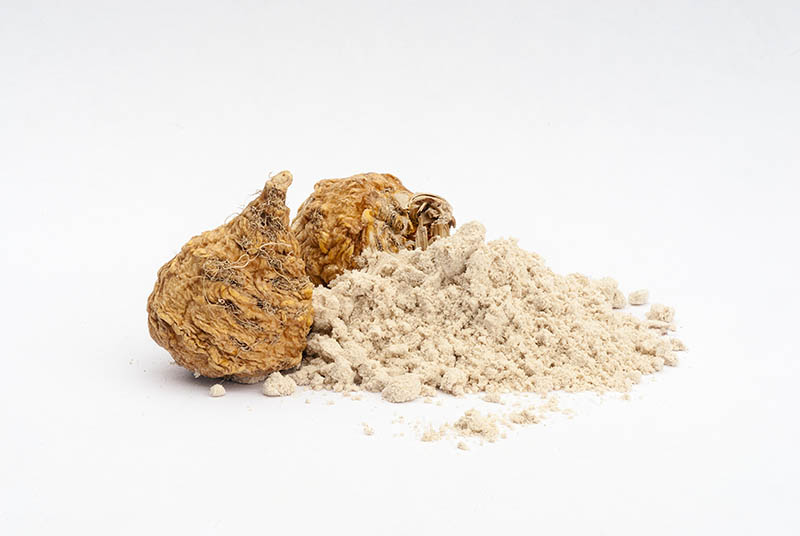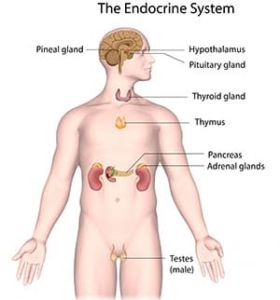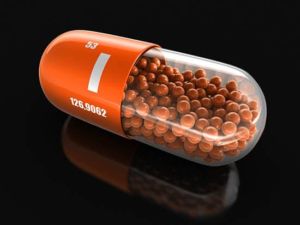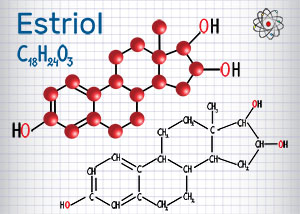
Everyday Chemicals Are Screwing Up Your Testosterone
You may have already read my other article on 7 habits which are killing your testosterone. There was a section in that on Water because

Growing at an astonishing altitude of 7,000 – 11,000 feet, where no other cultivated crop can survive, the use of maca root (formally called Lepidium meyenii and informally known as Peruvian Ginseng) dates back to around 3,800 B.C. as an integral part of ancient Peruvian and Inca health.
It’s health benefits were thought to be so mighty, in fact, many centuries later the Peruvian’s would give it as a gift to the newly landed Spanish.

There have been studies done on rats which showed maca root led to both an increase in luteinizing hormone (LH) and a big increase in testosterone and leydig cell functionality. (1, 2)
This sounds really promising as a direct testosterone booster but I need to be clear that no human case studies have shown it to directly boost testosterone production in humans.
All of our research at Alpha Wolf Nutrition is based heavily on human case studies because what works in rats or even primates, often does not translate to the human body.
With that said I still believe heavily in maca root as a strong testosterone support supplement due to the immense amount of nutrients and phytonutrients including some unique chemicals known as “alkylamides” which all help the body enter a state of homeostasis.
Maca root may not directly increase testosterone but it does provide a rare set of nutrients which nourish the endocrine system and helps keep the body functioning properly so testosterone production can be maximized.
In fact, more recent research shows that “Maca may be exerting its androgenic effects through actions at the testosterone receptor on target organs without affecting level of testosterone or gonadotrophins.” (3)
In other words, while it may not directly increase T, it may still provide the exact same benefits of a T increase!
Here are just some of the incredible nutrients in maca root:
It’s no wonder that scientists begin to study and see for themselves the many benefits of it starting as far back as the 1840’s!

The endocrine system includes many of the body’s glands such as the pituitary, thyroid and testicles (which produce testosterone).
The pituitary and thyroid are responsible for secreting hormones which help control several vital processes including:
Maca root is a known adaptogen which increases immunity by improving the body’s overall ability to take on challenging and stressful situations, anxiety and fatigue.
Recent studies on humans have also shown that it may increase erection strength, well-being, and libido. (4-6)
This should come as no surprise considering what we know about its effects on the endocrine system.

Maca root even contains trace amounts of iodine which upwards of 96% of the population may be deficient in. (7)
This is important to note because in order to maximize your testosterone you need a properly functioning thyroid and in order for your thyroid to function properly it needs iodine! (8)
Toxic halogens such as bromine, fluorine and chlorine are unfortunately loaded into our water supply. In addition to chemicals in everyday household cleaning supplies, soaps, shampoos, deodorant, even toothpaste!
These toxic chemicals can work their way in to both our thyroid and leydig cells in the testicles where testosterone in manufactured.
Iodine also works wonders at flushing toxins out of the body which can have particularly devastating effects on testosterone production. (9)

It’s long been my recommendation to stay away from DIM supplements. The high concentration of DIM in direct supplement form may have more negative effects than positive, including blocking DHT.
Since DHT is a powerful estrogen blocker itself. (10)
Consuming high doses of DIM in supplement form may counteract its own natural ability to block estrogen.
With that said, I believe DIM is fantastic consumed in its natural form in cruciferous vegetables like broccoli, kale and brussels sprouts.
Maca is actually a cruciferous vegetable and may be the most DIM rich of the bunch.
The human body is like a symphony, not a single note. Maca is like the string family in an orchestra.
It’s not going to make the concert all by itself but it provides many crucial nutrients the body needs to create beautiful music or in this case increase testosterone.
It is packed with several essential nutrients for boosting testosterone levels including vitamin D, vitamin E, zinc, magnesium and iodine and it may help promote more restful sleep and lower stress and anxiety.
These are all extremely key elements for your body to maximize testosterone production.
There are typically 2 types of extracts used to make Maca extract.
What these numbers mean is that either 4 kg or 10kg of raw maca is used to make 1 kg or extract. 10:1 is of course more than double the potency of 4:1 extract.
If the potency isn’t given on the label, I suggest you stay away from that product.
I recommend you supplement with between 150 – 300 mg of maca root (10:1) extract per day.
Our T booster Force X7 includes a powerful 250 mg of Maca Root at 10:1 which is equivalent to 2,500 mg!
It also includes 12 other key vitamins, minerals and herbs such as shilajit and longjack to help you maximize your testosterone.
References:

You may have already read my other article on 7 habits which are killing your testosterone. There was a section in that on Water because

Rhodiola Rosea stands out as a potent adaptogenic herb with a rich history of traditional use and a growing body of scientific research. Revered for

In this comprehensive article, we will explore what L-tyrosine is, its benefits as a pre-workout supplement, the correct dosage, and other potential health benefits it

Betaine anhydrous is becoming an increasingly popular ingredient for pre-workouts. In this article, we will explore the fundamentals of betaine anhydrous, its connection to carnosine,

Beta-alanine is a pre-workout powerhouse. From boosting workout performance to potential anti-aging effects, discover why this amino acid is a favorite among health buffs.

You may have already read my other article on 7 habits which are killing your testosterone. There was a section in that on Water because

Rhodiola Rosea stands out as a potent adaptogenic herb with a rich history of traditional use and a growing body of scientific research. Revered for

In this comprehensive article, we will explore what L-tyrosine is, its benefits as a pre-workout supplement, the correct dosage, and other potential health benefits it

In the ancient wilderness, a legendary creature prowled the untamed lands—a fierce and noble Alpha Wolf. This majestic beast possessed an aura of strength and resilience, leading its pack with unwavering authority.
In a parallel realm, a group of visionary alchemists delved into the mysteries of nature, seeking to create potent elixirs that could unlock the true potential of those who dared to embrace their inner power.
As fate would have it, these paths crossed, and an extraordinary alliance was forged. The Alpha Wolf and the alchemists found common ground in their pursuit of greatness, and thus, Alpha Wolf Nutrition was born.
United by a shared passion for excellence, the Alpha Wolf and the alchemists dedicated themselves to crafting supplements that harnessed the raw force of nature, empowering individuals to conquer their inner and outer worlds.
At Alpha Wolf Nutrition, we draw inspiration from the primal instincts of the Alpha Wolf—the embodiment of strength, leadership, and vitality. We believe that every individual possesses a dormant power within, waiting to be awakened.
Through our meticulously crafted products, we strive to unleash this dormant potential, allowing you to thrive in the face of challenges and embrace your true nature.
Our commitment lies in providing you with the highest quality, scientifically proven ingredients, carefully curated to deliver optimal results. We leave no room for guesswork, basing our formulations on human-backed research to ensure real, tangible benefits. With us, you’ll find no “proprietary blends” or token additions—just pure, effective dosages that fuel your journey to greatness.
Join the pack of Alpha Wolves and embark on a transformative journey with Alpha Wolf Nutrition. Embrace your inner strength, rise above the ordinary, and conquer your aspirations. Unleash the power within and let the spirit of the Alpha Wolf guide you to achieve your highest potential. Welcome to Alpha Wolf Nutrition, where the path to greatness awaits.

Alpha Wolf Nutrition is based on real science and results for the people we serve.
We do not cut corners, we do not hide behind “proprietary blends” and we do not put in worthless amounts of token ingredients to fill up a label.
What we do, is kick ass!

© 2016 – 2023 Alpha Wolf
Discount Applied Successfully!
Your savings have been added to the cart.